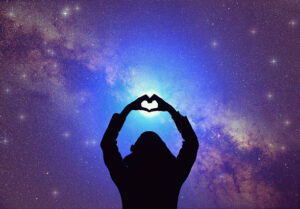
Gerrit Gielen, “The inner love flow,” LightRaisers Worldwide, at https://www.lightraisersworldwide.com/the-inner-love-flow-gerrit-gielen/.
Part 1
Preface
We seem to be always looking for love, and we especially want and expect it from our fellow human beings: as a child, from our parents, and later in life, from our partner. The latter, in particular, often turns out to be a disappointment, which in many cases leads to bitter reproaches. Divorces are often accompanied by tremendous hatred and resentment; people feel betrayed. The partner did not give us the love we thought we were entitled to, and now, apparently, we are without love.
Why do we need that love from the other so badly? Is it because we are unable to give ourselves love? Apparently, we are not very good at doing that, otherwise many divorces would be a lot less dramatic.
We all have a source of love in us, or we would not be able to give love. But why do we feel so unloved by ourselves?
What is blocking that source and stopping the inner flow of love? And what is love anyway?
In this article, I want to address those questions, and I will start with the last question.
What is love anyway?
In answer to that question, we quickly arrive at one definition: “feeling deep affection for another.” There is, however, a problem there: the word “affection” is a kind of synonym for the word love, so this definition is of no use to us, it is circular. It is difficult to define something as basic as love, so let us try to describe it by looking at its properties.
To begin with, love is unconditional. Conditional love is not true love. A parent who only loves a child if the child meets certain expectations does not really love that child. If you really love someone, you accept that person completely, including all their flaws. Love is beyond our ideas of right and wrong.
Love is energy, an energy that gives something; you immediately feel better when you receive love from someone. Love makes you feel seen, relaxed, and you blossom.
Love is also unifying: we feel connected to those whom we love.
This means that love is a giving and connecting energy that says “yes” to both light and dark; it includes both. Love brings together things which are broken, love heals. It is an energy that encompasses everything, heals everything, reconnects everything. The universe seems to be made up of an infinite number of life forms, of unique lives. Love is the inner connection between all those lives, which makes them all as one.
It rises above all boxes and divisions. Those separations are made possible only by time and space, and are created by our judgments; for example, good and evil.
So love is fundamentally an energy that transcends time and space, good and evil: the connecting and healing energy behind all forms.
Mystics often say that all is one. Love is the force that makes that happen. It is the reality of the oneness behind all forms; the reality that encompasses and permeates all those forms. It is the highest field of consciousness that is connected from within with everything, with the source.
The moment we say to another, “I love you”, we allow that reality back into our hearts. Then we lift ourselves for a moment to that level of unity and let go of the boxes in which we have fitted ourselves. Time and space, and all judgments about the other, then disappear for a moment. That is what love does. Love makes you aware again of the timeless, eternal reality. Love is the ultimate, most fundamental, reality in the universe, although this is at odds with all the ways of thinking that classify reality into boxes. As a result, many people live in a tension between what our thoughts tell us about ourselves and the reality around us, and what our hearts make us feel about it: walls versus unity; separateness versus connectedness.
(Continued in Part 2 tomorrow.)
© Gerrit Gielen
www.jeshua.net

